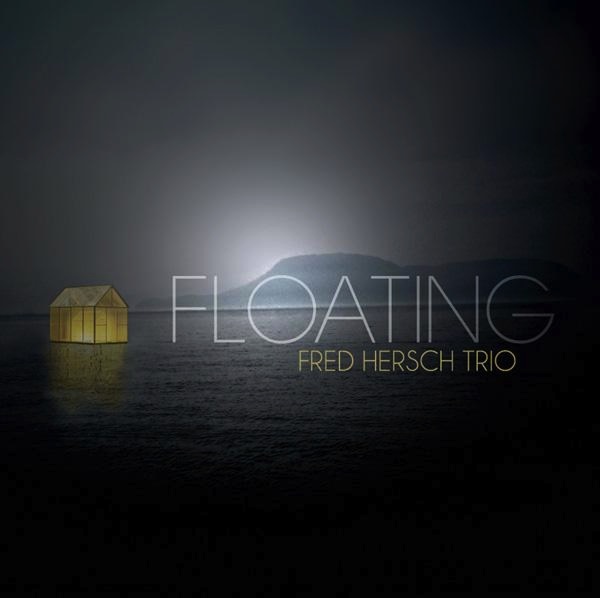Jazz CD Review: Pianist Fred Hersch’s “Floating” – A Constant Delight
Pianist Fred Hersch’s ballad playing is one of the special treats in contemporary jazz.
Floating, Fred Hersch Trio (w/ John Hébert, bass; Eric McPherson, drums), Palmetto 2171.
By Michael Ullman
Beginning to listen to a disc by pianist Fred Hersch is like happening onto a remarkable conversation that has been going on for some time. Immediately one is engaged. It’s not just that Hersch interacts freely and inventively with his bassist and drummer; his two hands are also in a lively conversation with each other. The result is that you quickly become absorbed by the complex rhythmic fabric woven throughout his new LP, Floating.
The trio opens with “You and the Night and the Music,” a favorite of Bill Evans as well. Evans’s version on Green Dolphin Street starts out jaunty and then becomes hard swinging. Hersch’s begins with a rapid statement of the theme in the right hand while his left presents a fascinating counter-argument. The apparent ‘trickery’ continues, as Hersch plays with and around the freely stated beat, creating more thematic playfulness than one would have thought possible. He never settles into Evans’ groove. There is harmonic inventiveness and melodic vitality here aplenty. Short, un-cliched breaks by drummer McPherson are a bonus.
The dreamy title cut, Hersch explains, describes the “magic sound space,” where the trio lives, where they trust each other so much they leave the everyday behind. It’s a minimal piece, played at a whisper: it might best be described as ‘much ado about little.’ Most of the rest of the disc contains Hersch compositions that Hersch dedicates to friends and family, such as the wistful, country-ish “West Virginia Rose,” played solo in honor of his mother and grandmother, and the more rambunctious “Home Fries” for his Louisiana-born bassist. “Arcata” refers to bassist Esperanza Spaulding: Hébert is given an opportunity here to help state the melody. The peaceful “A Speech to the Sea” finds Hersch in a rhapsodic mood. The tune gives us a chance to hear the smart and varied way his rhythm section inhabits the space that the pianist has vacated — McPherson’s splashy, sustained cymbal generates the wave on which the piece floats. The session ends with the standard “If Ever I Would Leave You” and Thelonious Monk’s “Let’s Cool One.”
Hersch’s ballad playing, with its subtle displacements of the beat, amplified by his sensitive variations of touch and nimble use of barely articulate hesitations, is one of the special treats of contemporary jazz. His version of Monk does not attempt to mimic the latter’s piano sound; instead, it focuses on his humor, his sophisticated mischievousness. Floating is a constant delight: it’s also an invaluable lesson in intelligent music-making.
Michael Ullman studied classical clarinet and was educated at Harvard, the University of Chicago, and the U. of Michigan, from which he received a PhD in English. The author or co-author of two books on jazz, he has written on jazz and classical music for The Atlantic Monthly, The New Republic, High Fidelity, Stereophile, The Boston Phoenix, The Boston Globe and other venues. His articles on Dickens, Joyce, Kipling, and others have appeared in academic journals. For over 20 years, he has written a bi-monthly jazz column for Fanfare Magazine, for which he also reviews classical music. At Tufts University, he teaches mostly modernist writers in the English Department and jazz and blues history in the Music Department. He plays piano badly.

